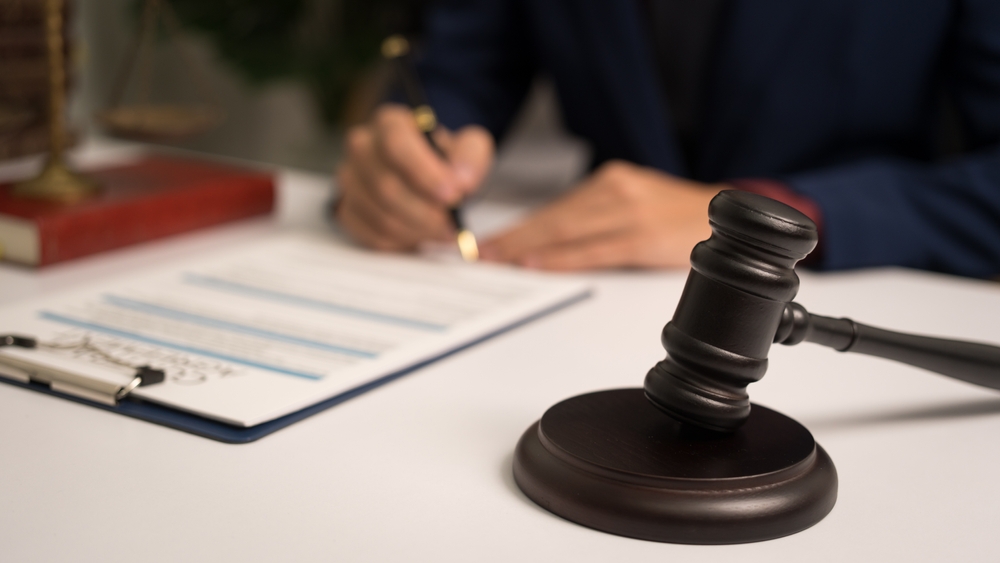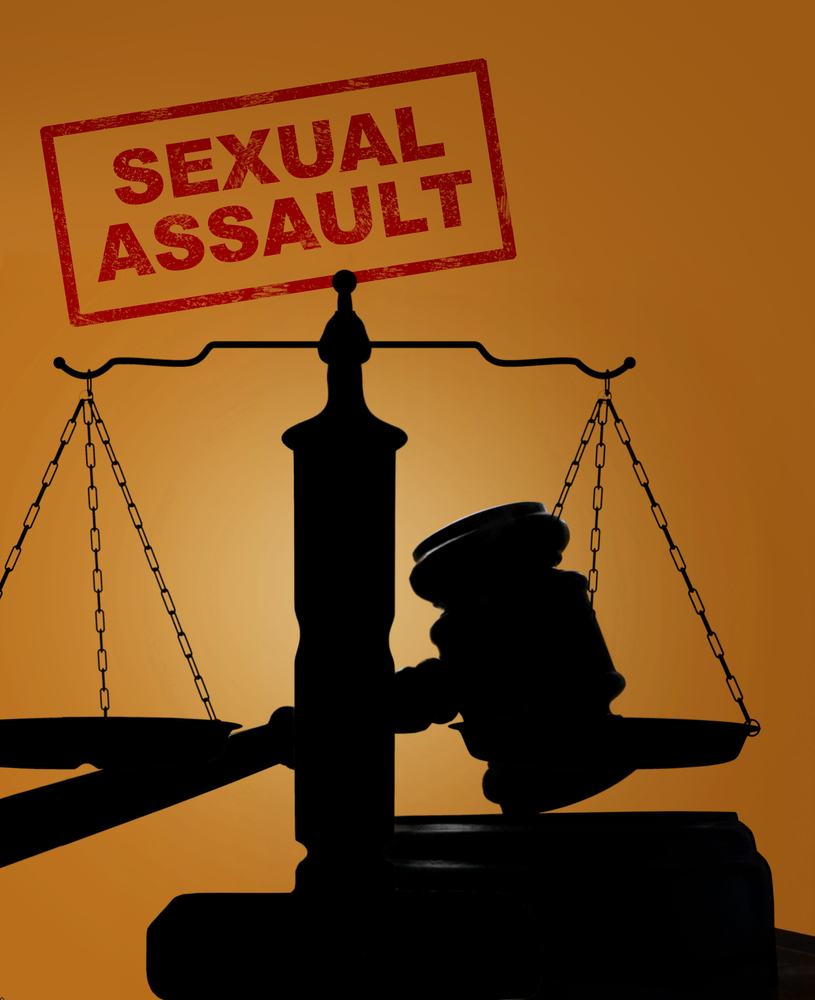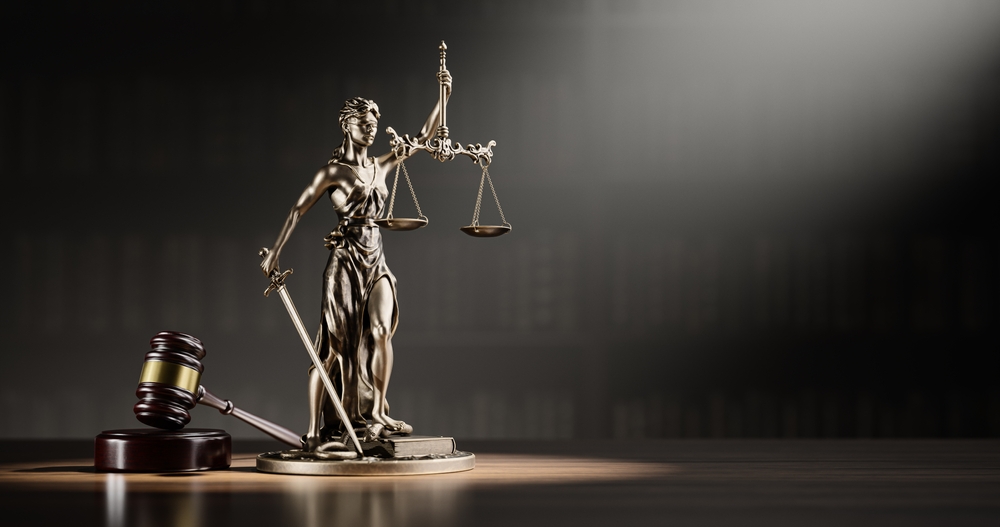Sexual assault charges are some of the most serious criminal allegations someone can face in Canada, bringing with them the potential for long-term imprisonment, mandatory registration as a sex offender, and multiple other legal and social repercussions.
At Vayeghan Litigation, we know that having a trusted criminal defence lawyer to guide you through the process is essential to securing the best possible outcome and protecting your future. Founded by Mo Vayeghan, a former BC Crown Prosecutor and Ivy-League-educated defence lawyer, our team believes everyone deserves access to the strongest possible defence and peace of mind when it matters most.
We understand that facing criminal charges is a daunting experience and that accusations of a sexual nature can be particularly overwhelming. If you have been accused of sexual assault in British Columbia, below are some of the most important steps to be aware of in the defence process. Read on to learn more.
First Steps
If you are accused of sexual assault, it is crucial to take action immediately. Sexual assault is a serious crime, and even if you know you are innocent, it is essential to address accusations as quickly and correctly as possible to protect yourself. Don’t delay. Contact a criminal lawyer right away. It is also important to remain silent, avoid contact with your accuser, and never speak to the police without consulting your lawyer. Finally, document everything going forward. Documentation is one of the most important parts of forming your defence, and you must be as diligent as possible.
Texts, emails, voicemails, as well as any other related details that can help prove intent and/or consent are crucial to protecting yourself and securing the best outcome possible. Your lawyer will review this documentation and any other relevant evidence to form the foundation of your defence.
Next Steps
Once you are charged with sexual assault, there are several steps (and, most importantly, several different windows of opportunity) before a case may proceed to trial. In fact, with the help of an experienced lawyer, such as Mr. Vayeghan, many cases are able to be resolved during negotiations, plea deals, and even the complete dismissal of charges.
The goal during the pre-trial stage is to resolve your case to minimize any long-term negative impact while also protecting your rights and freedoms as a citizen. In the event that your case isn’t resolved during pre-trial deliberations, your lawyer will then focus on preparing you for the possibility of proceeding to trial.
Negotiations with the Crown for Early Resolution (Plea-Deals)
Sexual assault cases are among the most complex and high-stakes criminal charges in Canada. The legal consequences of a conviction are severe, including potential jail time, sex offender registration, and a lasting criminal record. However, not all sexual assault cases result in trial or conviction—in certain circumstances, alternative resolutions such as peace bonds, conditional discharges, or negotiated plea deals may be available. While rare, these resolutions can allow an accused person to avoid a criminal record and incarceration, particularly in cases where there are evidentiary weaknesses, credibility issues, or mitigating factors.
Understanding Peace Bonds in Sexual Assault Cases
A peace bond is a type of court order under Section 810 of the Criminal Code that requires an individual to abide by certain conditions—such as avoiding contact with the complainant or attending counseling—in exchange for the Crown withdrawing the charges.
Key Features of a Peace Bond:
- The accused does not admit guilt but agrees to follow certain conditions.
- The charge is withdrawn, meaning there is no conviction or criminal record.
-
The accused must agree to conditions such as:
- No contact with the complainant.
- Avoiding certain locations (e.g., complainant’s home or workplace).
- Possibly attending counseling or therapy.
- Peace bonds typically last up to 12 months but can be extended.
Peace bonds are typically used in sexual assault cases where:
- There is insufficient evidence for a conviction.
- The complainant does not wish to testify or proceed with prosecution.
- The accused has no prior criminal record and poses no ongoing risk.
While a peace bond does not amount to a criminal conviction, failure to comply with its terms can result in new criminal charges.
Conditional Discharges: Avoiding a Criminal Record
In some low-severity cases, an accused may be eligible for a conditional discharge under Section 730 of the Criminal Code. This means that:
- The accused pleads guilty, but instead of a criminal conviction, the court imposes conditions (such as counseling, no contact orders, or good behavior).
- If the accused completes the conditions successfully, no criminal record is entered, and the discharge automatically removes the charge from their record after a set period.
-
Conditional discharges in sexual assault cases are typically considered only in circumstances, such as:
- Minimal harm or lower-level allegations.
- The accused demonstrates genuine remorse and rehabilitation efforts.
- The complainant supports a non-criminal resolution.
- There are significant evidentiary challenges making a conviction unlikely.
While a discharge still requires a guilty plea, it allows the accused to avoid the lifelong consequences of a criminal conviction.
Counseling and No-Contact Agreements in Resolution Negotiations
In some cases, plea negotiations may involve voluntary participation in counseling or therapy as part of a resolution agreement. This can be an important factor in persuading the Crown to:
- Reduce the charges to a lesser offense.
- Consider alternatives such as peace bonds or diversion programs.
- Recommend a more lenient sentence (such as a discharge or probation).
Participating in counseling or treatment programs (such as anger management, consent education, or sexual boundaries courses) can demonstrate to the court that the accused is taking proactive steps toward rehabilitation, which can be favorable during sentencing or negotiations.
Additionally, many resolutions involve strict no-contact agreements with the complainant. The accused must agree to:
- Cease all direct and indirect contact (including through third parties or social media).
- Avoid specific locations where the complainant lives, works, or studies.
- Respect all court-imposed conditions, even if the complainant later expresses a desire to reconcile.
Failure to abide by a no-contact order can result in new charges, which can significantly worsen the accused’s legal position.
When Are These Resolutions Possible?
While most sexual assault cases proceed to trial or involve significant plea bargaining, alternative resolutions such as peace bonds, conditional discharges, and counseling-based agreements may be possible in:
- Cases with evidentiary challenges (e.g., weak or contradictory evidence).
- Situations where the complainant does not wish to testify or continue with prosecution.
- First-time offenders with no history of violence or sexual misconduct.
- Cases involving misunderstandings, lack of intent, or minor allegations.
These outcomes are not automatic—they require skilled negotiation by an experienced criminal defense lawyer who can present compelling arguments to the Crown and the court.
Why Legal Representation is Critical
Navigating sexual assault allegations is incredibly complex, and the stakes are extremely high. If you are facing such charges, you need a highly skilled defense lawyer who can:
- Assess all available legal options and determine the best strategy.
- Negotiate aggressively with the Crown for the most favorable outcome.
- Present strong arguments for alternative resolutions like peace bonds or discharges when appropriate.
- Ensure that your rights are protected throughout the process.
Sexual assault cases carry severe legal, social, and personal consequences, but not all cases result in conviction or lengthy imprisonment. In certain cases, peace bonds, conditional discharges, or plea negotiations involving counseling and no-contact orders can provide alternative resolutions. These options allow the accused to move forward without the burden of a criminal record while addressing concerns about rehabilitation and public safety.
If you or someone you know is facing sexual assault allegations, it is essential to consult with an experienced criminal defense lawyer to explore all possible legal avenues and fight for the best outcome.
Understanding the Courtroom Procedures
Should your case proceed to trial, it becomes even more crucial to have a lawyer who is as experienced as a litigator in court as they are at advocating on your behalf behind closed doors. While many lawyers tend to specialize in one aspect over the other, one of the biggest benefits of choosing Mr. Vayeghan as your lawyer is gaining access to his extensive trial experience, both as a former Crown Prosecutor and as a seasoned defence attorney.
Trials are extremely complex undertakings. It is essential that your lawyer knows how to counter any presented evidence and witness testimonies, and prepares you to answer questions should it be necessary. Your lawyer must craft a skillful defence that casts reasonable doubt on the prosecution’s evidence by systematically highlighting inconsistencies or weaknesses in the Crown’s argument.
Your lawyer will also ensure that your rights are upheld throughout the trial, making sure that only legally admissible evidence is used and that the court follows proper legal procedures.
While the outcome of a trial (or any legal proceedings, for that matter) is never guaranteed, an experienced lawyer like Mr. Vayeghan will help you navigate the process with confidence and peace of mind.
Verdict and Post-Trial Options
Once your trial concludes, the judge or jury* will deliver the verdict. Should you be acquitted, the case will be closed, and your lawyer can help you transition back to normal life by helping you take further action against the many social and personal consequences that can linger after an accusation of sexual assault, even if you are found not guilty.
If you are convicted of your charge(s), that doesn’t necessarily mean the end of your legal journey. There are a wide variety of potential outcomes for conviction, including fines, probation, and imprisonment. Your lawyer will guide you through the next steps for your relevant outcome, and should it be applicable, can file an appeal or seek post-conviction relief where possible. This may include petitioning to reduce your sentence or pursuing alternative forms of punishment such as rehabilitation programs and more.
Trusted Sexual Defence Representation
Mo Vayeghan is a highly respected Vancouver criminal defence lawyer with extensive experience across the British Columbia judicial system. Backed by an Ivy League education from Columbia Law School and extensive experience in the courtroom, Mr. Vayeghan is proud to build a solid defence for his clients through strategic negotiation and extensive trial preparation.
With his in-depth knowledge of Crown prosecution strategies and a proven track record in securing acquittals, reduced charges, and case dismissals, Mr. Vayeghan provides assertive and proactive representation for clients facing serious allegations, including sexual assault. If you are facing charges of sex crimes in Vancouver, Mr. Vayeghan is here to help by providing experienced guidance, peace of mind, and the confidence you deserve when navigating the legal system.
Free Consultation Available Now
Don’t leave your future to chance.
Contact us now at 778-653-3995 or law@mvlitigation.com for a free consultation.



